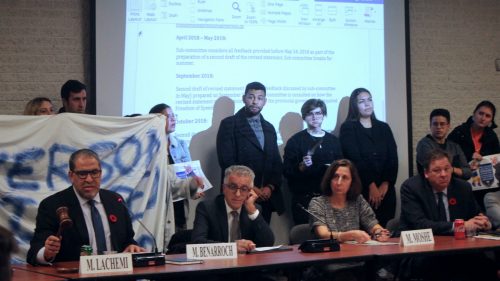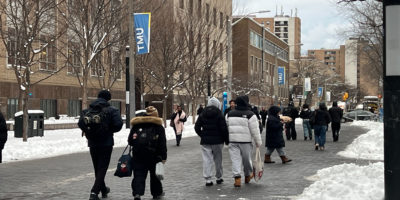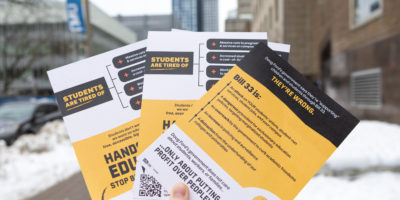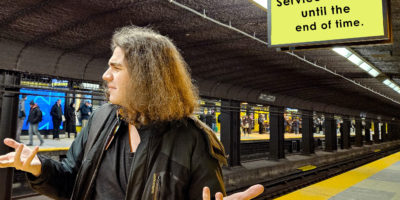By Kiernan Green
Ryerson University is moving forward with creating a revised freedom of speech statement following consultations with students and faculty.
After feedback from the consultations is reviewed, the statement will be presented to the senate, president Mohamed Lachemi told The Eye.
The senate had planned to vote on an updated draft statement in November 2018, but the statement was put on hold after protests. Students with the Black Liberation Collective (BLC) and Indigenous Students Rising (ISR) accused Ryerson of “getting in bed” with Ford and supporting his politics when they presented their first draft for a new freedom of speech statement.
Some students said the draft statement would allow hate speech on campus and would prevent students from protesting events they disagreed with.
While he couldn’t provide an exact timeline on when a new draft statement will be available to the Ryerson community, Lachemi said, “It’s very important for us to make sure that our community is involved.”
Ryerson’s current statement of freedom of speech—created in 2010—was planned for revision in June 2017. The matter became politicized in August 2018 after Ontario Premier Doug Ford announced that all post-secondary institutions must adopt freedom of speech statements.
Following the protest of students and faculty at the November senate meeting, Ryerson stated their 2010 statement on freedom of speech fit the bill for Doug Ford’s guidelines, and they would develop the new statement on their own time.
“Based on the feedback that we were hearing from both students and faculty, the statement that we were moving forward with [in November 2018] was not acceptable to the community,” said Ian Crookshank, executive director of student affairs, during a student consultation on Feb. 26.
Vice-provost students Jen McMillen and student senators Arvin Jagayat and Jacob Circo, who acted as facilitators, were also in attendance. They heard the comments of about 10 students.
Many of the members attending were from Socialist Fightback, who had protested the previous draft in November as well.

Four students attended the Feb. 25 consultation.
“We’re talking about social change, we’re talking about student’s voices, we’re talking about student engagement and we’re talking about shaping the society in which we all want to live,” said McMillen. “All those things are conversations which should be lead in university campuses as far as I’m concerned.”
David Jardine, fourth-year student and vice-president communications for the Ryerson Science Society said, “When students care about an issue, they show up.”
“If students actually thought their freedom of speech was under attack, we’d have hundreds of people here from every side,” he added.
McMillen said there was no concern about the level of student engagement when she “watched 250 students wait for an hour and a half in a hallway” to attend a board meeting regarding the recent Ryerson Students’ Union (RSU) credit card scandal.
If policy infringements happen outside of Ryerson jurisdiction, on Gould Street, Victoria Street, or in the spaces between HOEM Residence or Ted Rogers School of Management, Jardine questioned whether Ryerson could act. “From what I’ve seen, that’s a lot of where Ryerson’s policies fall short simply because they don’t apply.”
“This is where the radar should go off. This really has to be looked at as a political agenda. It has to be observed and analyzed in that way by the student body and by the Senate,” said Niki Michas, a member of Fightback. “[The senate] cannot play apathy or play apolitical.”
James Turk is the creator and director of Ryerson’s Centre for Free Expression. He said in making their new and improved statement on free speech, Ryerson must “be clear that the university does not censor speech” from either side of the politics.
“It also has to be clearer that free expression includes the right to protest,” he said. “Ryerson has an obligation…to help deal with people who are harmed by expression. If [expression] couldn’t be harmful nobody would be concerned about it.”
Turk said he thought the 2010 statement was weaker than the statement proposed in November. He said he commended the November draft for including the value of freedom of expression and an emphasis on “not only your right to express your views, but also your right to protest.”
The draft distingiushed that limitations to protest are “narrow exceptions, never to be used in a manner inconsistent with the University commitment to free and open discussion of ideas,” he said.












Leave a Reply